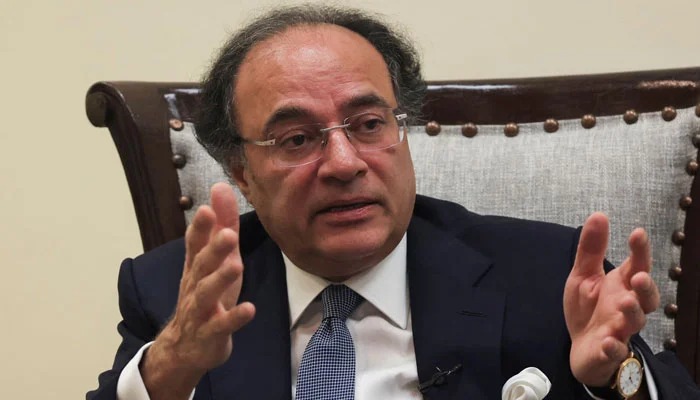Finance Ministry Senator Aurangzeb described ongoing reforms as crucial for boosting institutional efficiency and transforming the business environment

By our correspondent
ISLAMABAD: Federal Minister for Finance Senator Muhammad Aurangzeb has reaffirmed the government’s commitment to institutional restructuring and privatization, underscoring these reforms as central to Pakistan’s economic recovery and growth strategy. Speaking in a virtual meeting with banking representatives from the United Arab Emirates, the finance minister highlighted the progress Pakistan has made in its financial sector and expressed optimism about strengthening bilateral cooperation.
The meeting, attended by representatives from banks across Sharjah, Abu Dhabi, and Ajman, provided a platform for dialogue on Pakistan’s reform agenda and its implications for investors and international partners. According to a statement issued by the Finance Ministry, Senator Aurangzeb described the ongoing reforms as essential steps to improve institutional efficiency and enhance the business environment.
He noted that Pakistan’s tax-to-GDP ratio, currently hovering around 10.6 percent, is targeted to increase to 11 percent, reflecting efforts to broaden the tax base and improve revenue collection. The minister also stressed the government’s push towards the full digitalization of the Federal Board of Revenue (FBR), aiming to modernize tax administration and reduce leakages.
Senator Aurangzeb emphasized that Pakistan has met all the targets set under its International Monetary Fund (IMF) loan program, signalling fiscal discipline and commitment to structural reforms. He also mentioned the recent approval of $1.3 billion in funding through the Resilience Sustainable Fund, describing it as a vital boost for Pakistan’s economic resilience amid global uncertainties.
Highlighting a positive shift in market perception, the finance minister pointed to the improvement in Pakistan’s credit rating as a clear sign of growing investor confidence. Among the reforms, he singled out the introduction of a tax on agricultural income as a historic achievement for Pakistan, reflecting efforts to bring previously untaxed sectors into the formal economy.
The discussion with UAE banking officials reflects Islamabad’s broader strategy to attract foreign investment and deepen financial ties with key international partners. As Pakistan navigates economic challenges, the government’s focus on institutional reform, revenue enhancement, and strategic privatization remains pivotal to fostering sustainable growth and fiscal stability.



